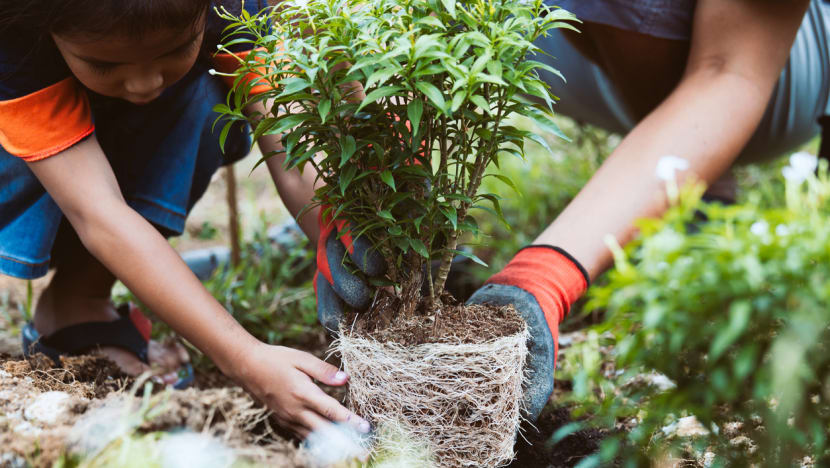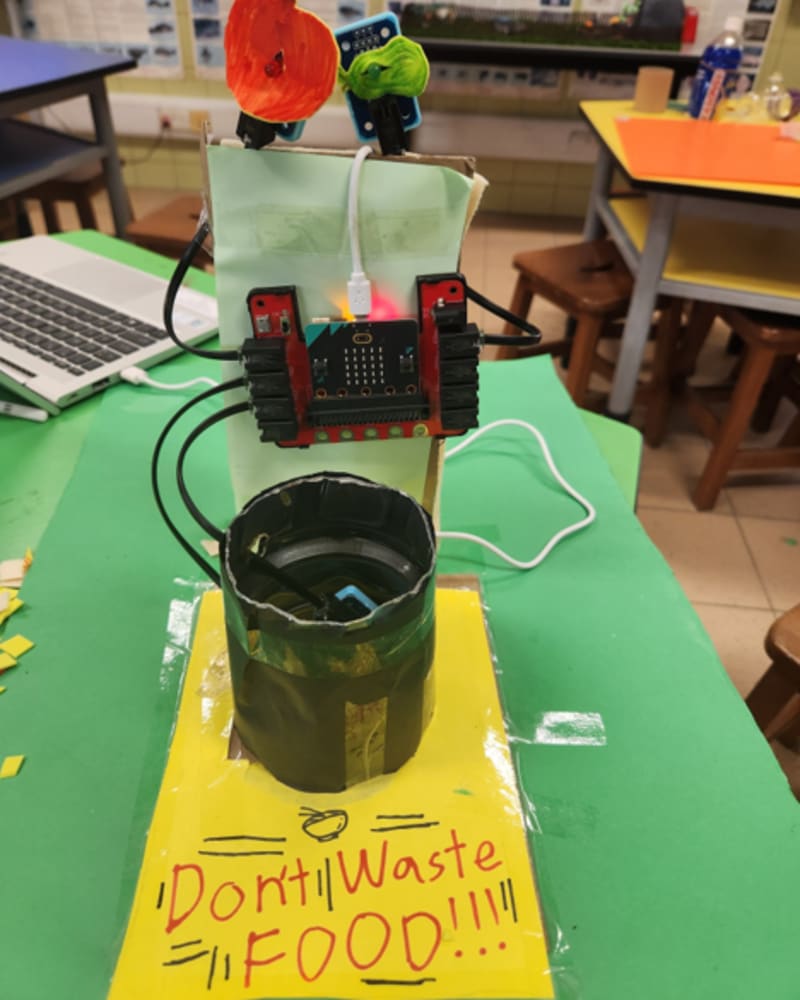Commentary: Teaching children to care about the environment starts at home
On World Environment Day (Jun 5), it’s worth reflecting how parents can impart environmental consciousness on their children - and what they can learn from their kids in turn, says WWF-Singapore CEO Vivek Kumar.


This audio is generated by an AI tool.
SINGAPORE: It is easy to overlook the influence we, as parents, have on shaping how our younger generation views the world around them. As a father of two daughters, I have come to appreciate the considerable opportunity we have to instil climate-conscious values in our children.
2023 was the world’s hottest year on record and was 1.48 degrees Celsius warmer than 1850 to 1900 pre-industrial temperatures.
The challenges facing our planet might seem distant, but they're closely intertwined with our own well-being. The extreme heat that struck swaths of Southeast Asia, including the Philippines and Thailand, killed dozens and brought schools to a halt.
All parents wish the best for our children. That includes a safe and healthy environment and a good set of values we wish them to inherit from us.
Every decision we make as parents sends a clear message to our children about the values we hold dear. It all starts at home, where simple actions speak volumes.
On World Environment Day (Jun 5), it is worth reflecting how parents can model eco-consciousness for their children - and what they can learn from today’s generation of socially aware youth.
MAKING SUSTAINABLE CHOICES
Actions like recycling paper, switching off lights when leaving a room and choosing reusable containers over disposables may seem small, but they sow the seeds for positive change in our kids' minds.
For example, although we live in a flat without a balcony like most Singaporean families, my wife grows plants like basil in a planter box. Our family uses basil leaves when cooking pasta, and my daughters now appreciate the plant not only for its visual pleasure, but also as a fresh and more affordable food ingredient.
These everyday habits, passed down from parents to children, shape not just how we live today but also the kind of world we'll leave for future generations.
However, digital devices and a busy schedule can create distractions for us. In our own home, we have to remind one another to switch off lights and to be mindful about using precious resources such as water.
EDUCATING CHILDREN ABOUT SUSTAINABILITY
School programmes play a crucial role in shaping youths’ commitment to environmental stewardship. Collaborations with government agencies and non-profits further enhance the impact of these initiatives.
When I visited Commonwealth Secondary School, which is among the 140 schools WWF-Singapore works with to develop sustainability programmes, I was amazed by how teachers and students have turned simple grass patches into rainforest and wetland habitats. Students also learn concepts of physics and chemistry through experiments in these natural habitats.
Children are not just the recipients of knowledge; they are the driving force behind change. This rings especially true in today's digital age, where the younger generation is increasingly vocal about environmental issues.
One inspiring example is a schoolgirl I met during a visit to the Henry Park Primary School, who was part of the Science Club. During our discussion on food waste, she kindly shared their invention with me: A small prototype to help fellow students in the canteen. The invention is a simple device equipped with sensors that alerts students if food waste reaches excessive levels.

Despite having fewer resources and less experience than us parents, such a creative innovation showcases the potential of our youth to drive real change.
Yet, it's concerning that only 21 per cent of Asia Pacific CEOs see climate change as a priority in 2024, according to an EY survey. Adults owe it to school children and other youth to take meaningful climate action.
LEARNING ACROSS GENERATIONAL DIVIDES
While we endeavour to impart climate consciousness to our children, our children have plenty to teach us too.
My daughter is passionate about marine environments and spends considerable time reading about the topic. With her teachers’ support, she was selected as a young marine biologist to represent her primary school on a panel discussion organised by the Nature Society Singapore.
As this was during the COVID-19 period of home-based learning, the session was held on Zoom and was open to the public. Her grandparents, family members and our friends joined the session and learnt much, while encouraging the children on the panel.
Soon thereafter, my daughter urged us to let her take public transport. I believe her choices are the result of her teachers initiating the right conversations with students about the environmental impact of their transportation choices.
When we engage with children about sustainability, we not only nurture their love for the natural world, but also enrich our own understanding of environmental issues through the child’s perspective.
As we journey from one generation to the next, parents play a vital role in shaping our future sustainability leaders. Our everyday actions and conversations with our children, including the occasional reminder (more accurately, nagging) to demonstrate planet-friendly behaviours, lay the groundwork for a world where environmental responsibility is ingrained in daily life.
Vivek Kumar is CEO of WWF-Singapore.


















